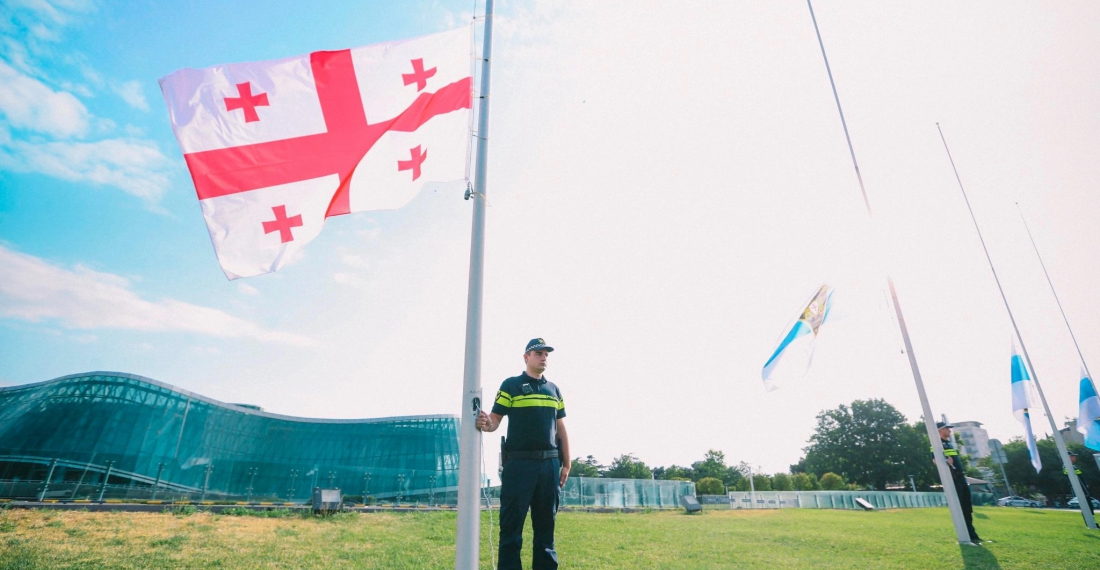A funeral has been held in Tbilisi’s Holy Trinity Cathedral, on Tuesday (2 August) for the eight pilots and rescuers who died when their helicopter crashed near the mountain resort of Gudauri on 29th July. The funeral took place between 11am and 2pm, after which the victims were transferred to their family cemeteries and buried with full military honours.
The Mi-8 helicopter had been attempting to rescue two paragliders who had had an accident in Georgia’s northern mountains when it lost control and plunged into a ravine. Onboard the helicopter were four crew members, two doctors, and two rescuers. One of the paragliders, a foreign tourist, also died.
Expressing his ‘deep sorrow’ and ‘sincere condelences and support to the family members and relatives of the deceased’, Georgian Prime Minister Irakli Gharibashvili declared 30th July a day of national mourning. Gharibashvili also announced that the families of the victims would receive 100,000 GEL ($35,000) each.
The crash came just two weeks after another tourist died in a paragliding accident, also in the Gudauri region. Georgia’s booming paragliding industry is now under intense scrutiny, with Interior Minister Vakhtang Gomelauri telling reporters at the crash site on 29th July that the sport ‘is truly a big problem’, adding that ‘hardly a week passes without a rescue operation, without deploying a helicopter.’
Despite paragliding becoming extremely popular in recent years, it remains ‘largely unregulated, allowing amateurs with little training to buy their own equipment and begin offering tandem rides to tourists’, according to Tbilisi-based journalist Nini Gabritchidze. While the Georgian Paragliding Federation has called for tighter regulations and proper launch sites, others questioned the suitability of the Soviet-era helicopter used in the failed rescue mission.
Speaking to the Pirveli TV network on 31st July, opposition deputy Alexandre Elisashvili called on the Interior Ministry to buy ‘adequate helicopters for emergencies’, comparing the Mi-8 to a ‘multi-functional marshrutka.’
All paragliding in Georgia has been suspended while a review of the industry and an investigation into the cause of the crash are conducted.







